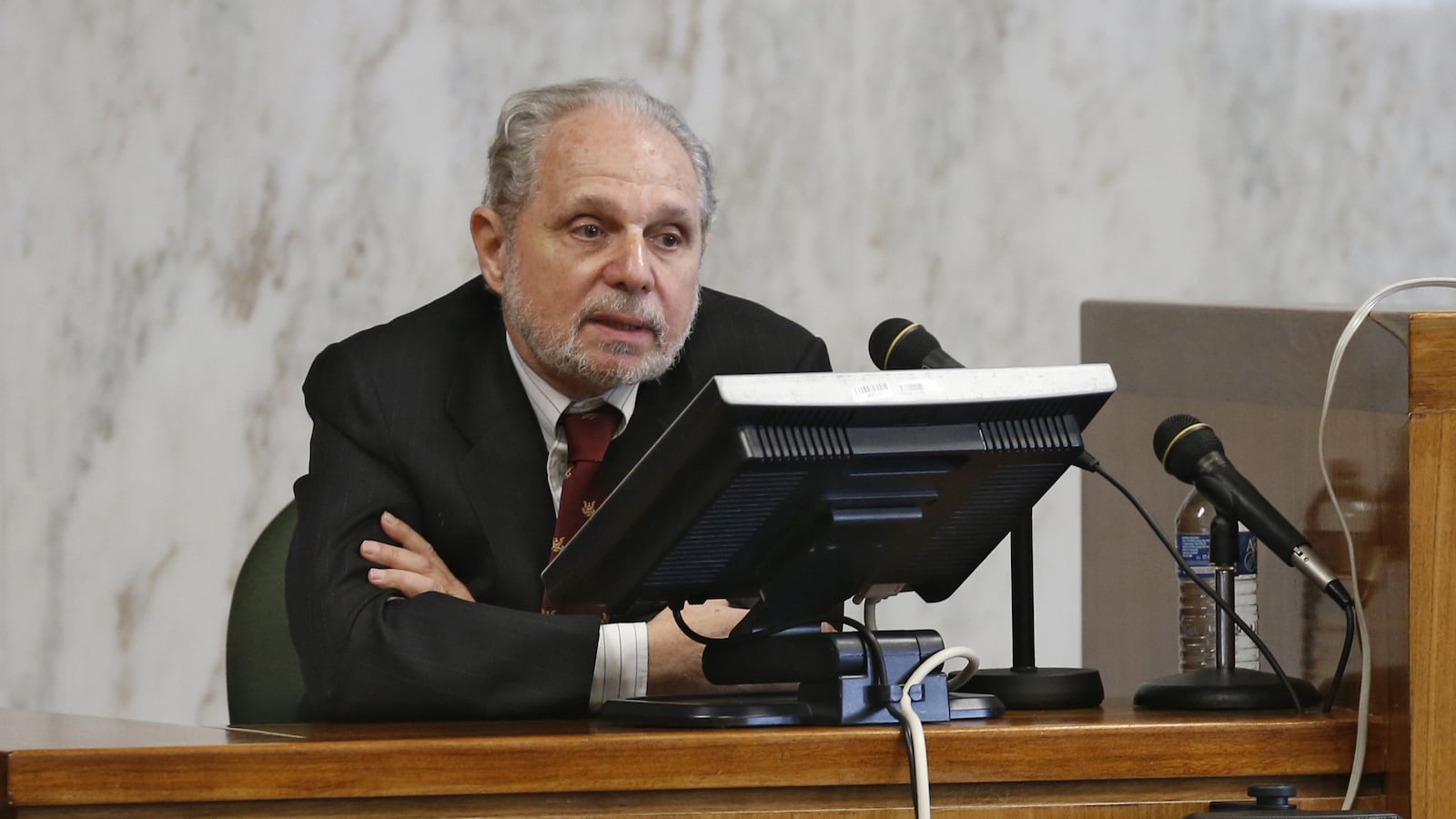Three Jews and a Mormon walk into a courtroom…No, it’s not the setup to a punchline, it’s the premise behind a major judicial blow to anti-LGBT conversion therapy in the United States.
On Thursday, while the nation waited for a Supreme Court ruling in Obergefell v. Hodges that could determine the future of same-sex marriage, a New Jersey jury delivered a landmark verdict on conversion, or “reparative,” therapies, medically denounced attempts to change one’s sexual orientation or gender identity.
In the first court case ever to rule on the practice of conversion therapy itself, the New Jersey jury concluded that the founders of Jews Offering New Alternatives for Healing (JONAH) are guilty of consumer fraud and ruled that they “engaged in unconscionable commercial practices,” as NJ.com reports.
The suit’s original plaintiffs—three Orthodox Jewish men and a Mormon man represented by the Southern Poverty Law Center (SPLC)—were told that JONAH had a “two-thirds success rate” for those who wish to suppress what they call “unwanted same-sex sexual attractions.”
The JONAH program, like many conversion therapy efforts, was unconventional and not rooted in proven therapeutic practices. In the original complaint, one of the plaintiffs alleged that JONAH coach Alan Downing asked him to murder an effigy of his mother with a tennis racket, The Atlantic reports.
Now JONAH is in a whale of trouble. It has been ordered to pay the remaining plaintiffs more than $70,000 in refunds and damages for the failed therapies. JONAH intends to appeal the decision while the SPLC seeks an injunction against the organization.
Meanwhile, the LGBT community will be celebrating the decision—SPLC deputy legal director David Dinielli called it a “monumental moment in the movement to ensure the rights and acceptance of LGBT people in America”—and looking to the future.
So far, efforts to criminalize LGBT conversion therapy have focused primarily on the legal sphere. Starting in 2012, California, New Jersey, Oregon, and Washington, D.C., all outlawed conversion therapy pertaining to sexual orientation.
In April, President Obama responded to the suicide of transgender teenager Leelah Alcorn by calling for an end to all conversion therapies, whether they target sexual orientation or gender identity. Legislation to that effect was introduced in the House the following month.
But despite the fact that virtually every reputable medical organization in the country—including the American Medical Association, the American Psychological Association, and the American Psychiatric Association—has condemned conversion therapy, it remains legal in almost every state. Dozens of organizations in the Positive Alternatives to Homosexuality (PATH) coalition still promote conversion therapy, alongside countless independent ministries and practices.
As of an April roundup published in New York magazine, conversion therapy bans have even recently failed in four states: Colorado, Hawaii, Maryland, and Virginia. Bans in at least a dozen other states are being considered but are contested.
While legal progress stutters and stalls, the New Jersey verdict offers a tantalizing new avenue for challenging conversion therapy organizations: making them legally and financially liable for their claims. Consumer fraud lawsuits don’t require evidence that conversion therapy is immoral, merely that it doesn’t work as advertised.
In some ways, that burden of proof may prove to be considerably lighter. A 2007 report from the American Psychological Association Task Force on Appropriate Therapeutic Responses to Sexual Orientation (PDF) concluded that “efforts to change sexual orientation are unlikely to be successful and involve some risk of harm.”
Conversion therapy is medically unsound, but it’s also, as the SPLC brilliantly argued Thursday, a faulty product. If Americans can’t put a stop to it as upstanding citizens, perhaps they can object to it as consumers.






